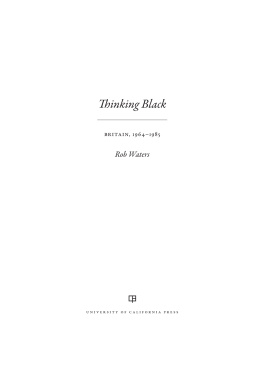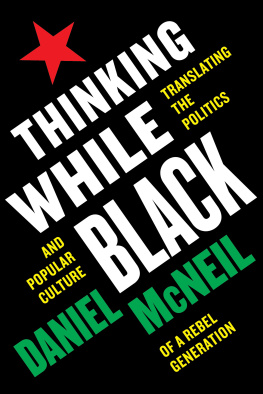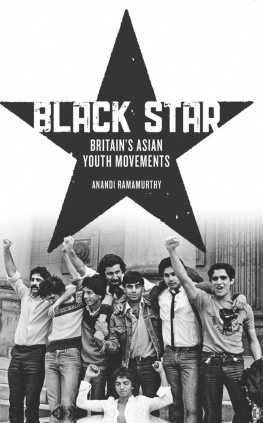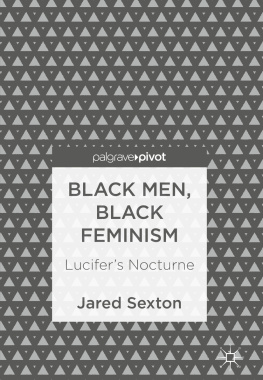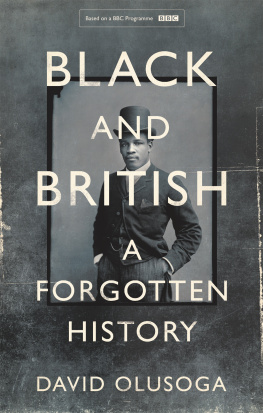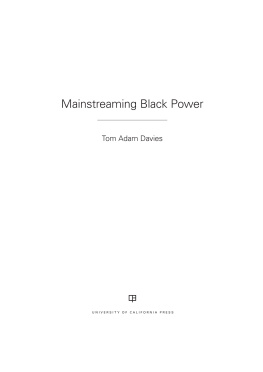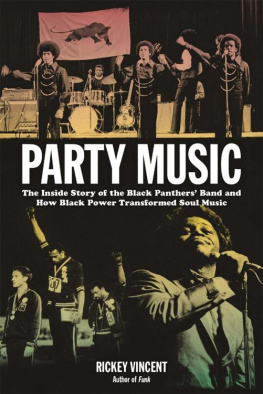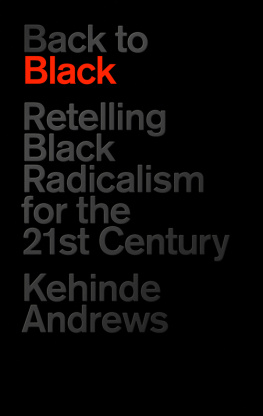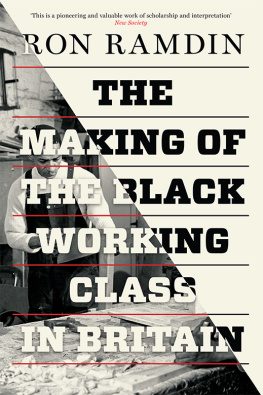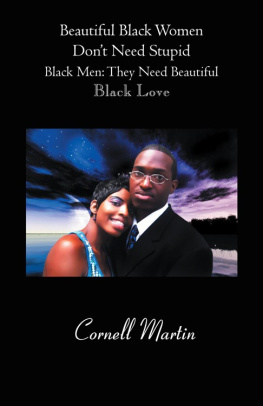ACKNOWLEDGMENTS
Many years ago, when I was an undergraduate at the University of Edinburgh, Enda Delaney encouraged me to think about postgraduate study. I am very grateful to him. University was not a tradition in my family, and certainly I had not considered further study. Such paths simply were not part of my social horizon at the time. Under Endas tuition at Edinburgh, and later under the brilliant supervision of Bill Schwarz and Rachael Gilmour at Queen Mary, I began to find my feet in academia. The writing of this book owes a lot to their encouragement, enthusiasm, and of course their intellects. Upon finishing my postgraduate study, I was caught in the scourge of modern university life in this neoliberal age: underpaid, short-term, part-time contracts, long intervals between jobs. I worked at many institutions in this period, as well as in jobs outside the university. I would like to thank my colleagues at these institutions, who have showed sympathy and solidarity, alongside national campaigns such as Fighting Against Casualisation in Education, who fight tirelessly for better academic lives. I also thank those immediate managers who, under difficult circumstances, did what they could to provide better working conditions and security for us. These people kept me afloat.
I have been lucky to also enjoy the support, encouragement and friendship of other brilliant scholars. As I worked through the job of proposing and then writing this book, James Vernon has been a constant source of support and excellent, incisive advice. I want to thank him, and to thank Niels Hooper, Bradley Depew, and the team at the University of California Press for their patience and kindness, and Peter Dreyer for his attentive and informed copyediting. I finished writing the book in my first year as a Leverhulme Early Career Fellow at the University of Sussex, and my thanks also go to the Leverhulme Trust for supporting this work, and to Clive Webb and Tim Hitchcock for mentoring me. Others at Sussex have also been brilliant: Anne-Marie Angelo, Hester Barron, Tom Adam Davies, Martin Evans, Jill Kirby, Claire Langhamer, Melissa Milewski, Nathan Richards, and Lucy Robinson have all been enthusiastic interlocutors as I worked through the ideas here. And beyond Sussex: Justin Bengry, Matt Cook, David Feldman, Tank Green, Hilary Ingram, Hannah Ishmael, Peter Jones, Diarmaid Kelliher, Feriel Kissoon, Jon Lawrence, Anna Maguire, Saima Nasar, Naomi Oppenheim, Kate Quinn, Gavin Schaffer, Robbie Shilliam, Clair Wills, David Winks, the Raphael Samuel History Centre, and my wonderful students on the Black Writing in Britain module. Thank you, all. Particular mention must be saved for my co-conspirators in rethinking the history of race in Britain: Kennetta Hammond Perry, Marc Matera, Radhika Natarajan, Nicole Jackson, and especially Camilla Schofield, a wonderful scholar and friend.
The story that Thinking Black tells would not have been possible were it not for the help and advice of four brilliant archives: the George Padmore Institute, the Institute of Race Relations, the Black Cultural Archives, and the Huntley Collection at the London Metropolitan Archives. The archivists and outreach workers here have been fantastic, not only in their intimate knowledge of their collections and dedication to the politics that their archives were built on, but in their willingness to help me as I sought to speak to those people whose stories this book tells. My thanks go to the staff at all these archives, but particularly to Sarah Garrod, who has helped me innumerable times over the years. Many people have also taken the time to speak with me about the stories I attempt to tell in this book, and to share their memories. To my great sadness, some of them are no longer here to see the finished product, but I would like to thank them all here: Jenny Bourne and A. Sivanandan, Leila and Darcus Howe, Jessica and Eric Huntley, Sarah White, Ansel Wong, Michael McMillan, Neil Kenlock, Paul Gilroy, and Peter Davis. Id also like to thank Una Howe, Shakka, Horace and Indra Ov, Peter Davis, and Neil and Emelia Kenlock, for helping me to locate some of the images I include in this book, and for allowing me to include them.
Final thanks go to my family, and to Fay. This book is for you, Fay.
ACRONYMS AND INITIALISMS OF BLACK BRITAIN
ACER | Afro-Caribbean Education Resources Project |

